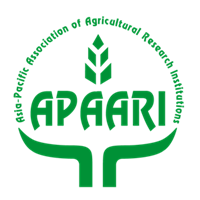Guide to Evaluating Capacity Development Results
Despite donor commitments of more than $30 billion per year on capacity development activities, donors lack consensus regarding what these activities include and what results should be expected. Conventional monitoring and evaluation (M&E) systems regularly fail to capture the impact of such activities. As a result, development practitioners are deprived of the opportunity to learn which capacity development interventions are most effective in different situations.
In its evaluation, Capacity Building in Africa, the World Bank Independent Evaluation Group critiqued the World Bank for not having “developed indicators to define capacity building outcomes” and, by extension, not having “developed a body of knowledge on what tools should be applied and how in different country and sector circumstances” (World Bank 2005:44). Other studies and reviews have reached similar conclusions, highlighting such overarching challenges as the absence of a conceptual framework and the poor articulation of a results chain related to capacity development (OECD 2005, 2006; World Bank 2006, 2008; Taylor and Clark 2008).
The World Bank Institute (WBI) developed the Capacity Development and Results Framework (CDRF) in response to these challenges, to provide a systematic approach and a set of tools for development practitioners to design a rigorous yet flexible capacity development strategy, or program logic, to monitor and adaptively manage their interventions and to evaluate their results (World Bank 2011). The CDRF focuses on capacity development as a process of empowering local agents to change constraining or enabling characteristics of institutional conditions, that is, facilitating improvements in institutional capacity dynamics to advance reforms and development goals.
Related Resources

Development Challenges of Indian Agriculture
This compendium consists of ten sector papers commissioned by FAO in 2008, as a precursor to the white paper and nally leading to the development of the FAO-India National Medium Term Priority Framework (NMTPF). These papers are intended to be...

Building Knowledge Systems in Agriculture: Five Key Areas for Mobilising the Potential of Extension and Advisory Services
There is renewed attention on the importance of advisory services and extension in rural development processes. This paper, based on the publication ‘Mobilizing the potential of rural and agricultural extension', focuses on five opportunities to mobilise the potential of extension...

Report on Prioritization of Demand-driven Agricultural Research for Development in Bangladesh
The International Food Policy Research Institute (IFPRI) partnered with the Asia-Pacific Association of Agricultural Research Institutions (APAARI) in 2011 to conduct a series of policy dialogues on the prioritization of demand-driven agricultural research for development in South Asia. Dialogues were conducted with...

Emerging Patterns in the Capacity Development Puzzle
Many capacity development (CD) programs and processes aim at long‐term sustainable change, which depends on seeing many smaller changes in at times almost invisible fields (rules, incentives, behaviours, power, coordination etc.). Yet, most evaluation processes of CD tend to focus...


